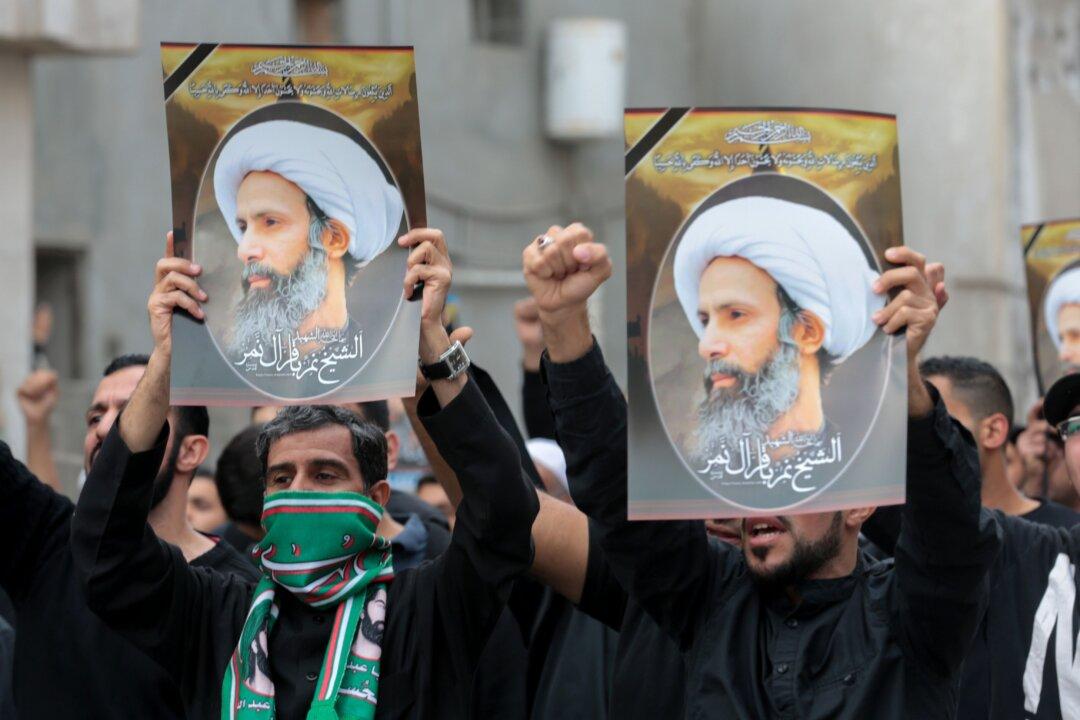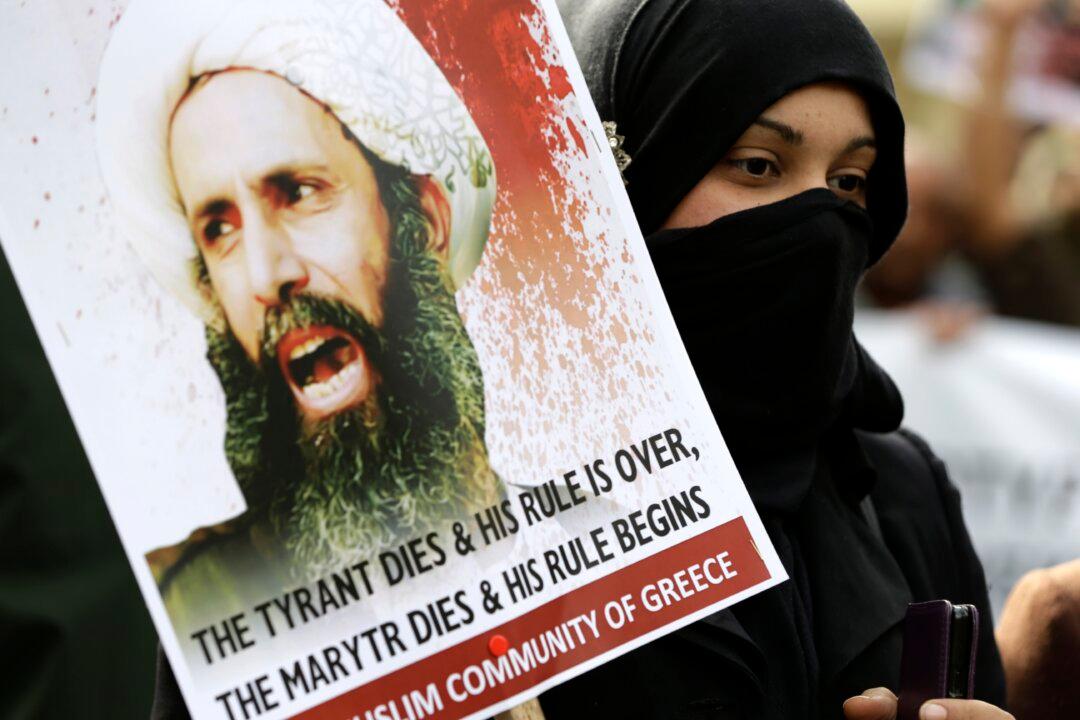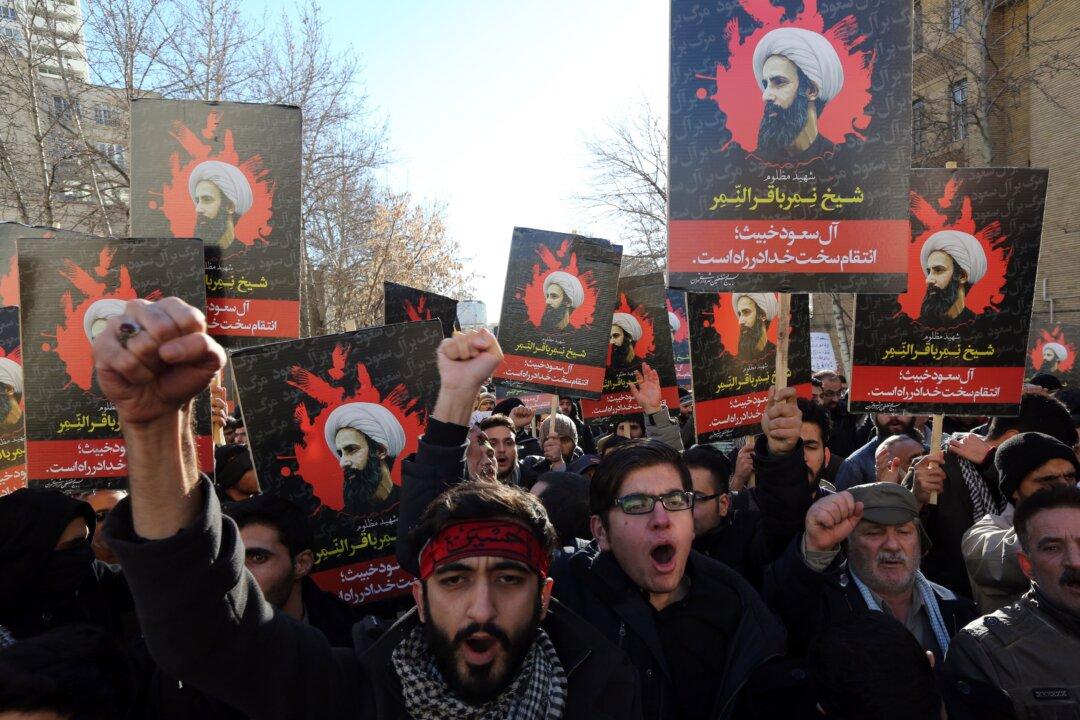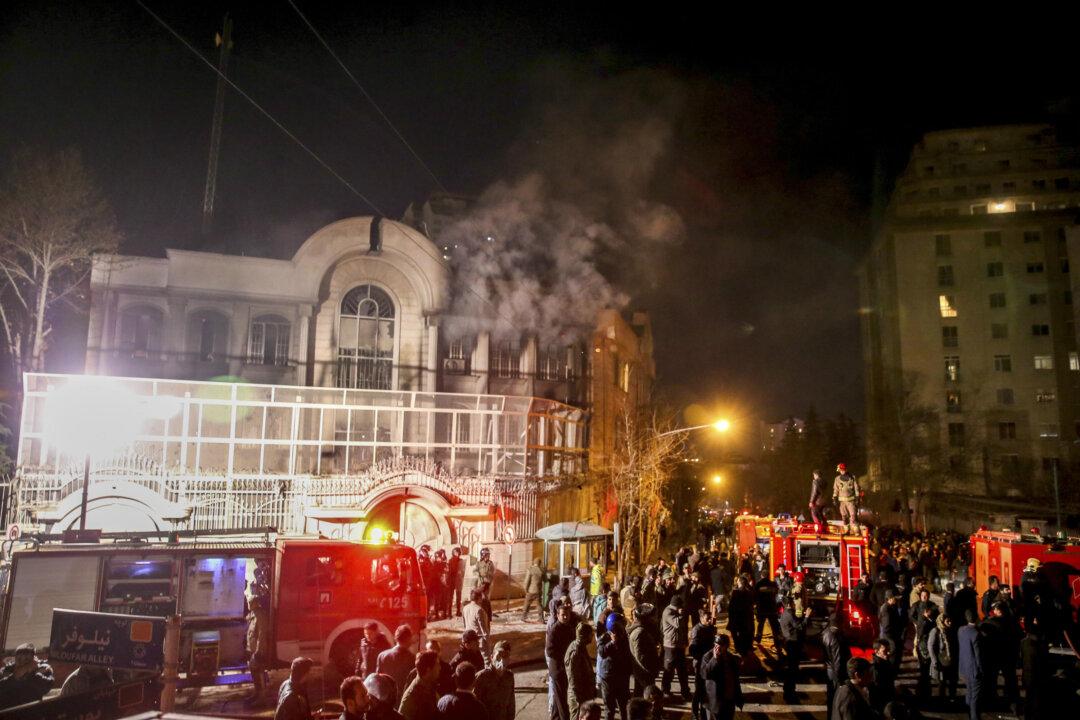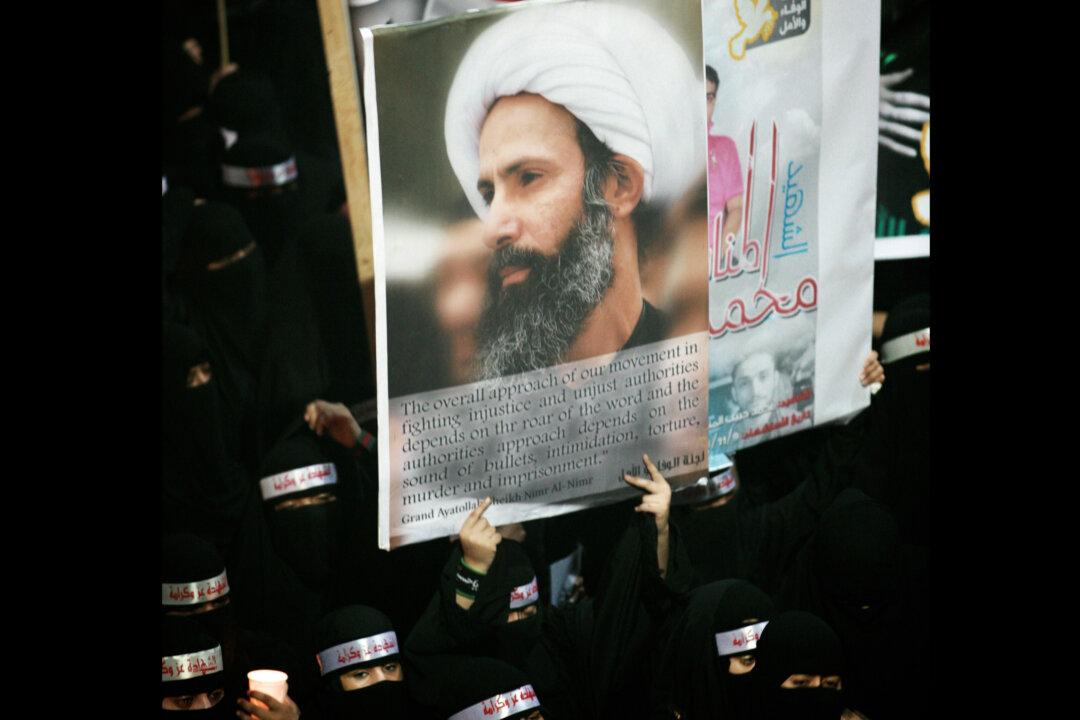Focus
Nimr al-Nimr
LATEST
Saudi Arabia—a Kingdom in Retreat
The Kingdom of Saudi Arabia, which was once at the front and center of the Arab world and a significant player on the global stage due to its oil riches, has been steadily losing its regional influence and prominent role.
|
The Saudi-Iranian Crisis Reveals a Deep Power Struggle in Tehran
Ever since Saudi Arabia’s execution of Shia dissident Nimr al-Nimr was met with violent protests at the Saudi embassy in Iran, the two already hostile countries have been at diplomatic loggerheads.
|
Saudi Arabia Executed a Nonviolent Shiite Cleric—It’s Going to Cost Them Big
By raising sectarian temperatures throughout the Middle East, the Saudis risk escalating the unaffordable proxy wars they’ve already bogged themselves down in.
|
Saudi Arabia’s Act of Strategic Defiance
The Saudi decision to execute Shiite cleric Sheikh Nimr al-Nimr at this particular juncture was a strategic act of defiance meant to challenge Iran and the United States in particular.
|
Iraq Must Walk a Fine Line Amid Iranian, Saudi Tensions
While many Iraqi Shiites took to the streets in outrage over Saudi Arabia’s execution of a prominent Shiite cleric, the country’s prime minister has had to walk a more cautious line, trying to contain Iraq’s own explosive sectarian tensions.
|
After Years of Proxy War, Saudi Arabia and Iran Are Finally Squaring Up in the Open
Ever since Saudi Arabia executed Shia Cleric Nimr al-Nimr for terrorist offences, tensions between Iran and Saudi Arabia have been escalating by the day.
|
Iran, Saudi Step Up War of Words Over Executed Shiite Cleric
Iran’s top leader on Sunday warned Saudi Arabia of “divine revenge” over the execution of an opposition Shiite cleric while Riyadh accused Tehran of supporting terrorism, escalating a war of words hours after protesters stormed the Saudi Embassy in Tehran.
|
Saudi Arabia Executes 47, Including Influential Shiite Cleric
Saudi Arabia announced on Saturday it had executed 47 prisoners convicted of terrorism charges, including al-Qaida detainees and a prominent Shiite cleric who rallied protests against the government.
|
Saudi Arabia—a Kingdom in Retreat
The Kingdom of Saudi Arabia, which was once at the front and center of the Arab world and a significant player on the global stage due to its oil riches, has been steadily losing its regional influence and prominent role.
|
The Saudi-Iranian Crisis Reveals a Deep Power Struggle in Tehran
Ever since Saudi Arabia’s execution of Shia dissident Nimr al-Nimr was met with violent protests at the Saudi embassy in Iran, the two already hostile countries have been at diplomatic loggerheads.
|
Saudi Arabia Executed a Nonviolent Shiite Cleric—It’s Going to Cost Them Big
By raising sectarian temperatures throughout the Middle East, the Saudis risk escalating the unaffordable proxy wars they’ve already bogged themselves down in.
|
Saudi Arabia’s Act of Strategic Defiance
The Saudi decision to execute Shiite cleric Sheikh Nimr al-Nimr at this particular juncture was a strategic act of defiance meant to challenge Iran and the United States in particular.
|
Iraq Must Walk a Fine Line Amid Iranian, Saudi Tensions
While many Iraqi Shiites took to the streets in outrage over Saudi Arabia’s execution of a prominent Shiite cleric, the country’s prime minister has had to walk a more cautious line, trying to contain Iraq’s own explosive sectarian tensions.
|
After Years of Proxy War, Saudi Arabia and Iran Are Finally Squaring Up in the Open
Ever since Saudi Arabia executed Shia Cleric Nimr al-Nimr for terrorist offences, tensions between Iran and Saudi Arabia have been escalating by the day.
|
Iran, Saudi Step Up War of Words Over Executed Shiite Cleric
Iran’s top leader on Sunday warned Saudi Arabia of “divine revenge” over the execution of an opposition Shiite cleric while Riyadh accused Tehran of supporting terrorism, escalating a war of words hours after protesters stormed the Saudi Embassy in Tehran.
|
Saudi Arabia Executes 47, Including Influential Shiite Cleric
Saudi Arabia announced on Saturday it had executed 47 prisoners convicted of terrorism charges, including al-Qaida detainees and a prominent Shiite cleric who rallied protests against the government.
|



